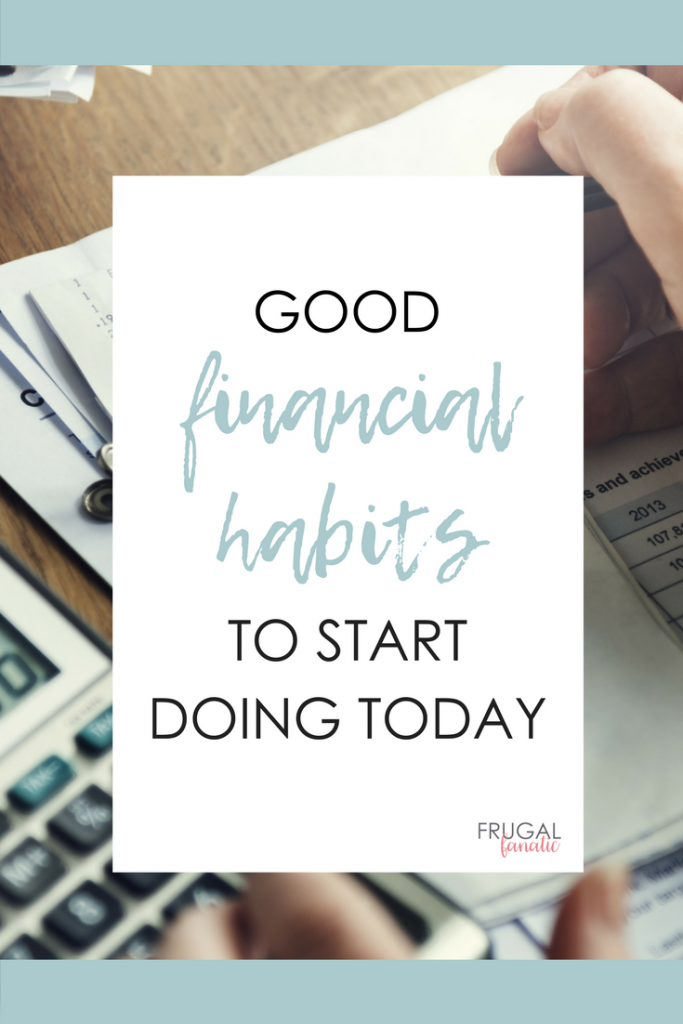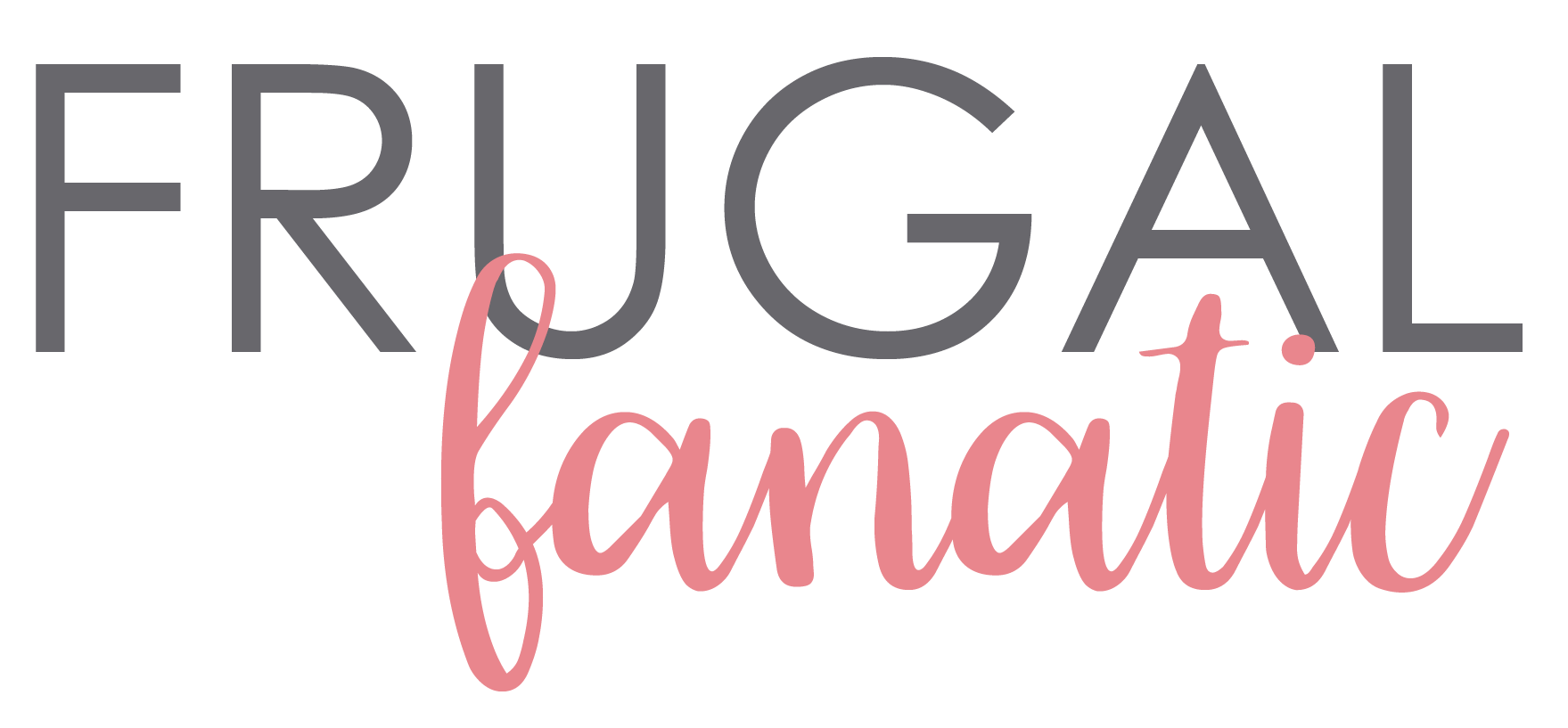Good financial habits to start doing today
Need help getting on the right track with your finances? Today, I am sharing small habits that will have a big impact on your finances. Even though the changes seem small they will make a big difference. It’s all about taking baby steps!These tips are ideal for helping you live within your means while saving, or even paying off debt.
Good Financial Habits To Start Doing Today
 Starting good financial habits now is a great way to make sure that you will have long term financial success. Just like any action, the more you do it the more likely it will become a habit. When it comes to financial habits, beginning a habit now is a great way to have success later.Always track your expenses. On of the best habits you can start now is to make sure you track all of your expenses. Often times you find yourself thinking you aren't really spending much, but when you look at all of your receipts, you are suddenly reminded that those small purchases add up fast.Use a method that works well for you. Many people use spreadsheets to create an expense tracker. Others may create a sheet on pen and paper that you manually add expenses to as you make the purchase. Still others use online programs like Quickbooks to keep track of expenditures. Whatever method you use, tracking what you spend your money on is a must to begin good financial habits.The key is figuring out what works best for you. If you need help getting started, you can check out my budget templates here. <link: https://www.frugalfanatic.com/monthly-budget-spreadsheet/>Buy used when possible. One habit those with great finances know is that buying used will almost always be better in the long run. Instead of spending extra money to buy a brand new item, take the time to find used items when applicable.Thrift shops, second hand stores, garage and yard sales, and of course online swap shops are all great places to find inexpensive but gently used items.This can be for things like kids clothing and electronics all the way up to your next car or appliances.Do your research before buying. Buying items used requires research, but so does buying new. One good financial habit you need to focus on is doing your research. This includes all new purchases of consequence. Doing research can not only save you money, but can give you time to decide if what you are buying is truly something you want or need.
Starting good financial habits now is a great way to make sure that you will have long term financial success. Just like any action, the more you do it the more likely it will become a habit. When it comes to financial habits, beginning a habit now is a great way to have success later.Always track your expenses. On of the best habits you can start now is to make sure you track all of your expenses. Often times you find yourself thinking you aren't really spending much, but when you look at all of your receipts, you are suddenly reminded that those small purchases add up fast.Use a method that works well for you. Many people use spreadsheets to create an expense tracker. Others may create a sheet on pen and paper that you manually add expenses to as you make the purchase. Still others use online programs like Quickbooks to keep track of expenditures. Whatever method you use, tracking what you spend your money on is a must to begin good financial habits.The key is figuring out what works best for you. If you need help getting started, you can check out my budget templates here. <link: https://www.frugalfanatic.com/monthly-budget-spreadsheet/>Buy used when possible. One habit those with great finances know is that buying used will almost always be better in the long run. Instead of spending extra money to buy a brand new item, take the time to find used items when applicable.Thrift shops, second hand stores, garage and yard sales, and of course online swap shops are all great places to find inexpensive but gently used items.This can be for things like kids clothing and electronics all the way up to your next car or appliances.Do your research before buying. Buying items used requires research, but so does buying new. One good financial habit you need to focus on is doing your research. This includes all new purchases of consequence. Doing research can not only save you money, but can give you time to decide if what you are buying is truly something you want or need.
- Research brands for best reviews online
- Research warranties and extended services offered with purchases
- Research pricing and the best option for shipping or pickup
Have clear financial communication with your spouse. There is nothing more important about your financial future than having clear financial communication with your spouse. If you are married, it's important that you are both on the same page financially.This includes having a family budget that you both work from. Sitting down together and working on a budget that is functional is a must.Talking through spending habits and making things clear to each other will help tremendously.Create a savings account. If you feel like you can't create a savings account, you are wrong. There is always at least a few dollars a month you can set aside. Yes, even if it is just $1-$5 per month you are still saving money. One of the easiest way to save money is to set up your direct deposit from work to automatically send a portion to a savings account each pay period. Most employers will let you designate a percentage or set amount to another account. You simply have to fill out a form.{Related: How to Pay Yourself First}Other ways to create a savings account are to sign up for a debit card that rounds up each charge to the next dollar.The difference is then shifted into a savings account for you. Those pennies and dimes add up to dollars in a hurry. Especially if you use a debit card on a regular basis.Always keep an emergency fund. An emergency fund is a must for everyone. Just like a savings account, this is mandatory. The difference is that this is a fund you don't touch unless there is an emergency need.
{Related: Step-by-step guide to building an emergency fund}
Many individuals feel like an emergency fund and a savings account are the same thing.They are, in fact, not the same thing.Savings accounts are designated for specific needs or desires. Most people have a savings account for vacations, holiday expenses, or even retirement. An emergency fund is set up as an account that is only touched when you need emergency funds outside your regular income to cover a need.This would be for something like a medical emergency, job loss, or major home repair. Ideally, you don't want to dip into your emergency fund unless you absolutely have to do so.Starting good financial habits today is important for long term financial health. Whether you are trying to pay off debt, build a healthy retirement fund, or simply survive paycheck to paycheck, these tips apply.
